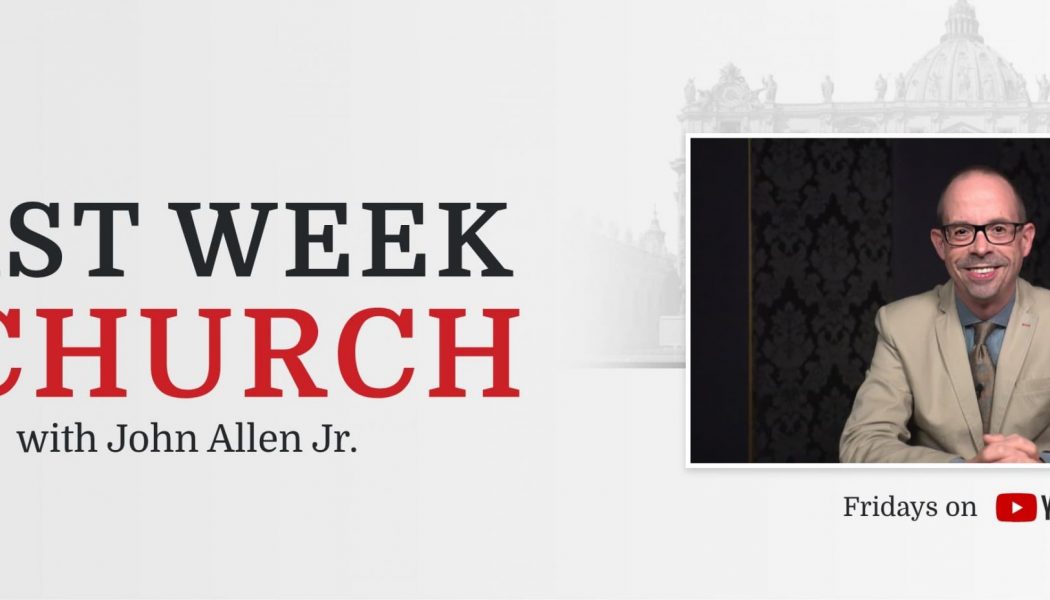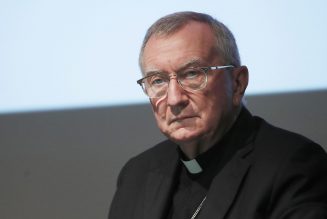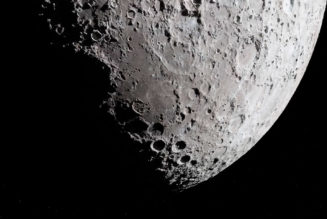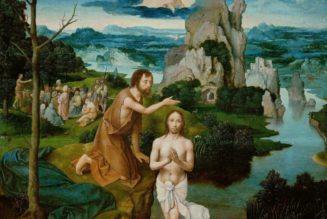ROME – Every papal trip is, in a sense, an exercise in storytelling. A pope chooses to travel to a given destination in part because he believes it has a story the world needs to hear, and, for a few days, he lends it his spotlight, so the global media pay attention.
Pope Francis’s March 5-8 trip to Iraq, currently in its third day, is no exception. Iraq’s story is harrowing, made up of upheaval, violence, and unimaginable human suffering, all of it compounded by global neglect. Its Christian minority has been especially afflicted, a point Francis recalls today with his visit to the Christian village of Qaraqosh that was devastated under ISIS occupation from 2014 to 2017.
Certainly Iraqis seemed to get the point. Sunday morning while Pope Francis was arriving in Mosul, a young Iraqi psychology student in Rome named Sana Rofo told Italian TV that she’d never seen her country so united, enthusing, “The pope has performed a miracle!”
Meanwhile, a tweet from an Iraqi Muslim watching the trip unfold was going viral in the country: “I hope the pope comes every year,” he wrote, only half-kidding.
Yet one could make the argument that the most important story being told on this trip, at least from a strictly Catholic point of view, isn’t actually about Iraq but about Pope Francis himself.
No matter how much longer he remains in office, and despite all the drama we’ve already seen and whatever is yet to come, there will be no better synthesis of who Francis is and what he’s about as pope.
To begin with, this trip crystallizes Francis’s will and determination – or, to use the less elegiac term, his stubborn streak.
If you’d polled 100 Vatican officials and papal diplomats six months ago, probably 99 would have counseled against a papal trip to Iraq. It would be irresponsible in the midst of a global pandemic, they would have said, and moreover, the security situation is too precarious. They might also have pointed out that the Vatican just posted a $60 million deficit in 2020, and perhaps this isn’t the time to be running up travel bills. (Even if the lion’s share of the cost is absorbed by the host country, it’s not as if Iraq is rolling in excess cash either.)
Further, there’s also the question of the pope’s own physical condition. Recently he was compelled to cancel or postpone several events due to battles with sciatica, the painful nerve condition from which he suffers. Due in part to the relative inactivity imposed by coronavirus lockdowns, Francis has also put on some weight in recent months, further complicating his movements and making him more prone to exhaustion. Watching him in Iraq, his fatigue is often visible.
No doubt Francis heard all those arguments, repeatedly and with increasing emphasis as the date of departure drew nearer. He went anyway, which is characteristic of his insistence from the beginning on following his own lead.
More deeply, it’s no accident that Francis is making this trip while the Covid-19 pandemic is still raging. In many ways, it’s precisely because of Covid that Francis felt this outing is so essential.
From the beginning, Francis has championed greater solidarity and compassion in global affairs, from the treatment of migrants and refugees to the structure of the global economy in the early 21st century. While those concerns are rooted in his reading of the Gospel and his pastoral experience in Latin America, the coronavirus crisis clearly has turbo-charged them. In his mind, the pandemic has revealed the underlying fragility of the present global order, posing a make-or-break choice: We either emerge better from this crisis, or we accelerate down the path toward self-destruction.
In the encyclical Fratelli Tutti, Francis articulated his vision for what “being better” looks like at great length. However, Francis also realizes this is a visual age, in which people respond much more instinctively to images rather than words.
From the pontiff’s point of view, the Iraq trip not only didn’t need to wait for the definitive end of the pandemic, it had to happen now, because it’s Fratelli Tutti in miniature and wove of gestures rather than words.
When Francis met Grand Ayatollah Ali al-Sistani yesterday in Najaf, the de facto Vatican of Shia Islam, he sent a powerful message about overcoming sectarian divisions and creating a culture of dialogue. When he visits Mosul today to pray for the victims of war, he’s in effect teaching a graduate seminar about the human cost of violence. When he stops in the Christian village of Qaraqosh, he’ll be writing the visual equivalent of an apostolic letter about religious freedom, human rights, and tolerance.
If “being better” post-Covid means a deeper sense of human fraternity and solidarity, with a special emphasis on reaching out to those who’ve been scarred by neglect and injustice, is there a better place on earth to make that case than Iraq?
In addition, let us remember this: Whatever else Pope Francis is, he’s also a crafty Jesuit politician, and nothing he ever does is without its logic. No doubt the pontiff grasps that in a moment in which other world leaders generally aren’t making high-profile public trips, and in which the global media is starved for good news stories to tell, his presence in Iraq has maximum resonance.
Many years ago, Bruce Springsteen issued a “Greatest Hits” collection with personal notes on the various albums represented. With regard to his iconic 1975 album “Born to Run,” Springsteen wrote that it had been “my shot at the title” of greatest rock-and-roll album of all time.
Francis’s March 5-8 journey to Iraq is, in effect, also his shot at the title – not of “greatest” papal trip of all time, perhaps, but the most emblematic, the one that best sums up the spirit of a papacy and its message for the world in its historical moment.
Whether this trip actually will change the world remains to be seen, but we’ll likely never see a more vintage Francis effort to make the case.
Follow John Allen on Twitter at @JohnLAllenJr.
Join Our Telegram Group : Salvation & Prosperity










